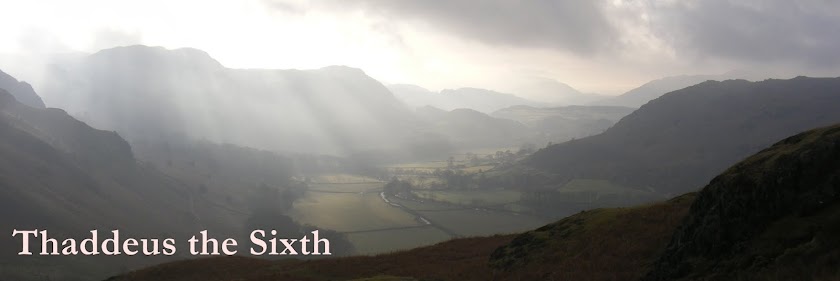I really liked Dragon Age: Origins when I played it over a decade ago. It was one of my favourite games of all times, but how would it hold up nowadays? For the sake of reference, my PS3 is the original fat version.
Character Creation
Character creation is a whole different beast to other games because, in addition to selecting your sex, race (dwarf, elf, or human), and class (rogue, mage, warrior) players pick an origin. These determine the first two hours or so of your game before converging into the common thread of the plot. Elves have three potential starts (city elf, which is very dark, Dalish, and mage), dwarves have two (both cool, noble and common) and humans have two (noble, also very dark, and mage). Dwarves cannot play as mages for lore reasons.
You make your own face, which mostly works ok except that beards give your characters totally hollow cheeks that look weird. There’s also a decent range of haircuts which were copied in the sequel and replaced with mostly rubbish in Inquisition.
On this occasion I played as a female dwarf warrior with the commoner origin, but during the years I have played every single origin and all of them are good. It’s a great way of making each start distinctive and you will encounter again those you meet at this stage. It’s also excellent at immersing you in your own corner of the world and making you understand things from a certain perspective.
Story and Sound
The story is the single strongest point of Dragon Age: Origins, and the writing team hit it for six. The basic plot is very simple. There’s a blight. Think fantasy zombies called darkspawn plus an undead dragon (there’s more interesting lore to it than that, but that’s the shorthand). Ferelden (a sort of fantasy Britain) is at risk of annihilation. You join the Grey Wardens, the only chaps and ladies who can stop it, and that’s your job.
Players have to rally different factions obligated by ancient treaties to help. But with each group paths can diverge according to how the player acts. You can choose to be super nice (as I did on this occasion) or be brutal (lots of murder-knife action for those who want it). Often these are moral questions or dilemmas with no clear cut answer, but two legitimate yet opposing choices. And because the player has a few of these factions to get on-side, there’s a constant feeling of progress towards the greater goal.
The writing of dialogue, from cutscenes to party banter, is excellent, and the voice acting is great (a particular favourite of mine is Simon Templeman as Loghain). There’s a deep sense of authenticity to the world (if one can say that about a fictional place). The dwarves aren’t just short humans, they have their own civilisation and culture. Similarly with the elves. Companion dialogue is especially good, with differing people getting along well, or not (I went with the classic Alistair-Morrigan party, plus Leliana). Unlike other games, there’s not really a weak link (one might say the dog, who cannot talk) and you can go all the way from sleeping with a companion to annoying them so much they leave or try to kill you.
The music is also good, particularly the main Grey Warden theme.
Gameplay
Combat still works very well, with differing classes bringing different but complementary skills to the table. There are some minor niggles here as frames can drop or the game stutter a little. There’s a good but not enormous range of enemy types, with differing types and level of darkspawn, alongside the mindless undead, revenants, abominations, and good old-fashioned bandits. A nice touch is the mini-slowdown and animation you may get when you kill an ogre.
There’s also a party camp where you can recover from injuries and enjoy some chats with party members (also possible for the three you choose to take into the field), and a merchant.
Graphics
Graphically, things still look pretty good. Character models for companions and the like are decent but do look a shade dated now. Less significant characters are prone to hollow cheeks. I have this turned off, but if you have a sanguine sense of humour, leave the blood spatter on. Having your characters discuss things while covered in blood is, er, interesting. Menus etc are completely fine graphically, lighting effects could be better, fire has a notably low frame rate flicker, but things are basically fine given its age.
Bugs and Other Issues
When it comes to problems I’ve already mentioned the potential in combat for things to stutter a little (it is only a little, it’s an annoyance but not a major one). I did experience three crashes during my playthrough of around 33 hours or so (NB I did not do everything that was possible by a long way). All occurred when entering the menu during combat, and in the latter half of my playthrough. Not ideal. Load times can be on the long side, and you’ll encounter shorter loading when just entering a house in a village, or suchlike.
Replayability
Replayability is excellent. Not only are there the usual differing classes and races to pick, but the unique origins add a lot to the depth of a playthrough. Plus there is a very broad range of outcomes and serious decisions with major consequences. You can be delightfully nice, or a demon-shagging, child-murdering, elf-slaughtering psychopath. Your character might end up dead, or on the throne of Ferelden.
Conclusion
Origins really does stand up as a great game. A few
technical points weigh against it (dated graphics, the odd crash) but the core
of the game is a match for anything that’s been released since and it remains
the best entry in the series by a long way.
Thaddeus
